If you have high blood pressure, you might be questioning whether it’s safe to drink coffee. After all, coffee is one of the most popular beverages in the world, and millions of Americans rely on it to start their day. However, there are concerns regarding its effects on blood pressure and overall cardiovascular health.
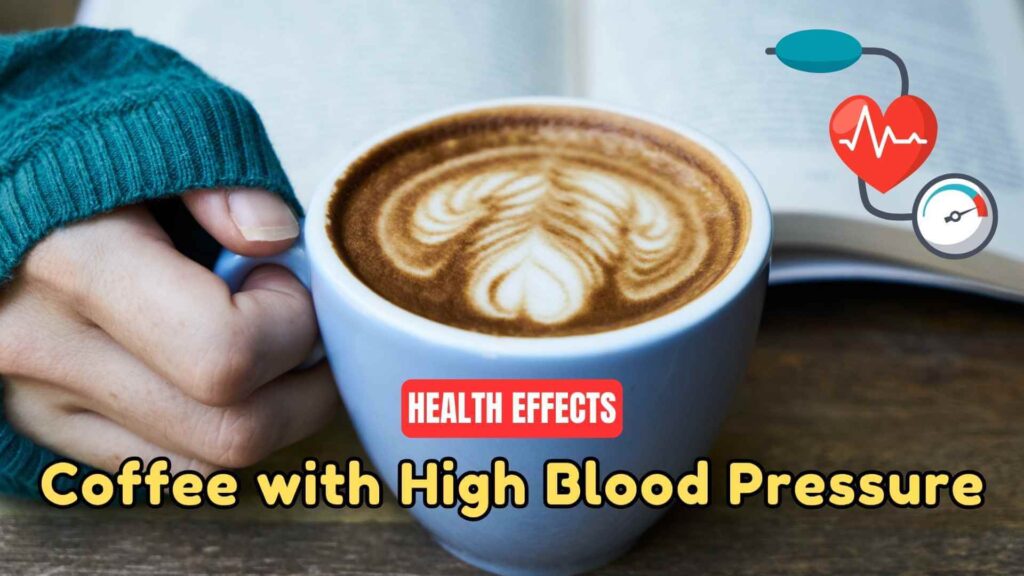
While you can drink coffee if you have high blood pressure, but it’s important to limit caffeine intake and consult with a healthcare provider to ensure it’s safe for your specific condition.
This article explores the relationship between coffee, caffeine, and high blood pressure (hypertension) to help you make informed choices about your coffee consumption.
Read: https://coffeemakerusa.com/can-i-drink-coffee-if-i-have-diarrhea/
Understanding the Connection Between Coffee and Hypertension
Hypertension, commonly known as high blood pressure, is a serious health condition that affects millions of Americans. It occurs when the force of blood against the artery walls remains consistently high, leading to increased risk for heart disease, stroke, kidney disease, and other serious conditions.
What Is Hypertension?
Hypertension is often referred to as the “silent killer” because it typically does not show symptoms until significant damage has already occurred. It is defined by having a blood pressure reading consistently above 130/80 mmHg.
- Systolic Pressure (top number) measures the pressure in your arteries when your heart beats.
- Diastolic Pressure (bottom number) measures the pressure in your arteries when your heart rests between beats.
When blood pressure is high, your heart and arteries face unnecessary strain, potentially leading to long-term damage.
How Does Coffee Affect Blood Pressure?
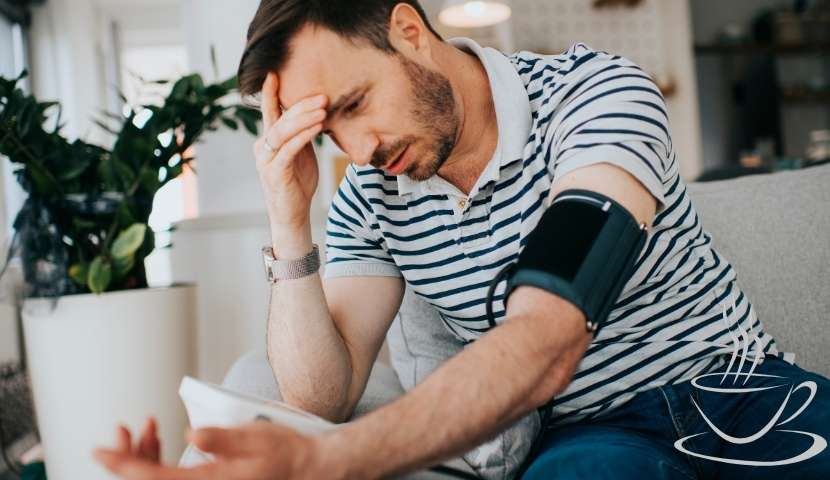
Coffee contains caffeine, a natural stimulant known for its ability to increase alertness and energy. However, caffeine also has physiological effects on the body, particularly on the cardiovascular system.
The Role of Caffeine in Blood Pressure
Caffeine causes the release of adrenaline and stimulates the central nervous system, which can lead to a temporary increase in blood pressure. This is why coffee consumption may cause a short-term rise in blood pressure. For most people, this rise is modest and only lasts for a few hours.
Caffeine Sensitivity and Tolerance
- Initial Effects: People who do not consume caffeine regularly are more likely to experience a more significant rise in blood pressure after drinking coffee.
- Tolerant Individuals: Those who consume caffeine daily may build up a tolerance, meaning the body adapts to the stimulant, resulting in less impact on blood pressure over time.
- Genetic Factors: Some people may be genetically predisposed to be more sensitive to caffeine, which can affect how their body processes the stimulant.
The Short-Term Effects of Coffee on Blood Pressure
Temporary Increase in Blood Pressure
For most people, drinking coffee can cause a temporary rise in blood pressure. Research suggests that this rise typically lasts anywhere from one to three hours, depending on factors like body weight, caffeine tolerance, and general health.
Blood Pressure Changes After Coffee
- A study published in the American Journal of Clinical Nutrition found that drinking a cup of coffee could increase systolic blood pressure by an average of 8-10 mmHg and diastolic blood pressure by about 5-7 mmHg in non-habitual coffee drinkers.
- Regular coffee drinkers tend to experience smaller increases in blood pressure due to built-up tolerance.
Factors Influencing the Impact of Coffee on Blood Pressure
Several variables can determine how much your blood pressure increases after consuming coffee:
- Caffeine Tolerance: Regular coffee drinkers may not experience as much of a spike in blood pressure as occasional drinkers.
- Age: Older individuals may be more sensitive to caffeine’s effects.
- Pre-existing Conditions: Those with hypertension or other cardiovascular conditions may experience stronger effects from caffeine.
- Stress Levels: Coffee can compound the effects of stress on the body, potentially leading to a more significant increase in blood pressure.
Long-Term Considerations: Coffee and Hypertension
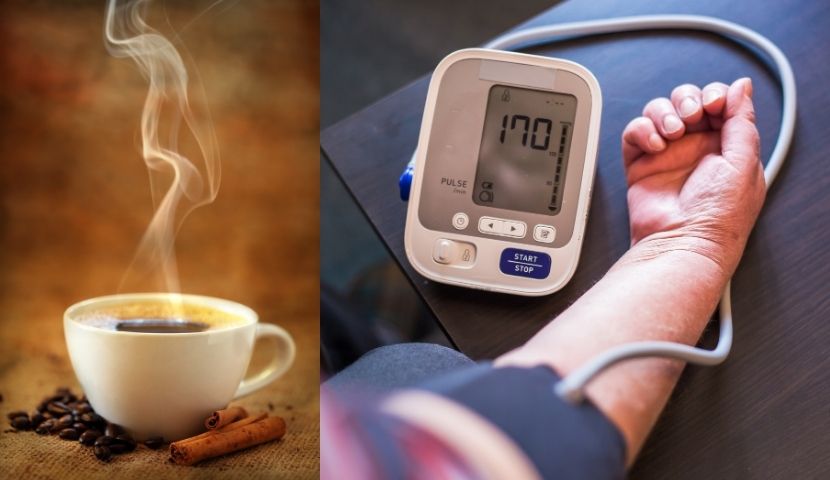
Does Coffee Cause Long-Term High Blood Pressure?
Research on whether coffee leads to long-term hypertension is mixed. While moderate consumption is generally considered safe, excessive caffeine intake has been associated with an increased risk of developing sustained high blood pressure. However, for most people, moderate coffee consumption does not cause chronic hypertension.
Moderate Coffee Consumption and Blood Pressure
Moderate coffee consumption (about 1-3 cups per day) does not appear to significantly affect long-term blood pressure levels for most individuals. Some studies have even shown that regular coffee drinkers may have a slightly lower risk of developing hypertension compared to non-drinkers.
Excessive Coffee Consumption and Hypertension
Excessive caffeine intake, however, can exacerbate existing hypertension and lead to higher blood pressure over time. Health experts generally recommend limiting caffeine intake to no more than 400 milligrams per day (about 4 cups of coffee) for healthy adults.
Safe Caffeine Consumption Guidelines
Recommended Caffeine Intake for Hypertension
If you have high blood pressure, it’s important to limit your caffeine intake to avoid exacerbating your condition. Many experts recommend that individuals with hypertension consume no more than 200 milligrams of caffeine per day, which is about 2 cups of coffee.
How Much Caffeine Is in Your Coffee?
| Coffee Type | Caffeine Content (per 8 oz) |
|---|---|
| Brewed Coffee | 95 milligrams |
| Espresso (1 oz) | 63 milligrams |
| Decaf Coffee | 2-5 milligrams |
| Instant Coffee | 30 milligrams |
| Black Tea | 40 milligrams |
For comparison, a standard 8-ounce cup of brewed coffee contains about 95 milligrams of caffeine, while decaffeinated coffee contains negligible amounts.
Coffee’s Potential Health Benefits

Despite concerns about its effects on blood pressure, coffee also offers several health benefits:
- Rich in Antioxidants: Coffee is a powerful source of antioxidants, which may help reduce inflammation and protect against oxidative damage in the body.
- Heart Disease Risk: Some studies suggest that coffee consumption may lower the risk of heart disease by improving endothelial function (blood vessel health).
- Reduced Risk of Certain Diseases: Research has shown that coffee drinkers may have a lower risk of developing type 2 diabetes, liver disease, and even certain cancers.
However, it’s essential to balance these benefits with the potential risks associated with excessive caffeine consumption, especially for individuals with high blood pressure.
Alternatives to Coffee for Hypertension
If you’re concerned about coffee’s impact on your blood pressure, there are several alternatives that can still satisfy your cravings while being gentler on your cardiovascular health:
- Decaffeinated Coffee: Offers the flavor of regular coffee without the caffeine-related rise in blood pressure.
- Herbal Teas: Varieties like chamomile, hibiscus, and peppermint are naturally caffeine-free and can be soothing for those with high blood pressure.
- Green Tea: Contains a moderate amount of caffeine and has been shown to have heart-health benefits due to its high antioxidant content.
Managing Blood Pressure Beyond Coffee
While managing coffee intake is one part of controlling blood pressure, it’s essential to take a holistic approach to hypertension management. Here are some additional tips:
Dietary Changes to Help Control Blood Pressure
- Reduce Sodium Intake: Limit processed foods and add more fresh fruits, vegetables, and whole grains to your diet.
- Increase Potassium: Foods like bananas, sweet potatoes, and spinach are rich in potassium, which helps balance out the effects of sodium.
- Limit Alcohol and Tobacco: Excessive alcohol consumption and smoking can raise blood pressure.
Exercise for Blood Pressure Control
- Regular physical activity, such as brisk walking or cycling, can help reduce blood pressure and improve cardiovascular health.
- Aim for at least 150 minutes of moderate exercise per week.
Conclusion
For most individuals with high blood pressure, moderate coffee consumption is generally safe, especially if caffeine intake is kept within recommended limits. However, it’s crucial to monitor how your body reacts to caffeine and consult with your healthcare provider, particularly if you have severe hypertension or other heart-related conditions.
Remember that managing high blood pressure is a comprehensive effort that involves a healthy diet, regular exercise, stress management, and lifestyle adjustments. Always seek professional advice to tailor a plan that works best for you.
Note: This article is intended for informational purposes only and should not replace professional medical advice. Please consult your healthcare provider for personalized guidance.
Frequently Asked Questions
Does drinking decaffeinated coffee affect blood pressure?
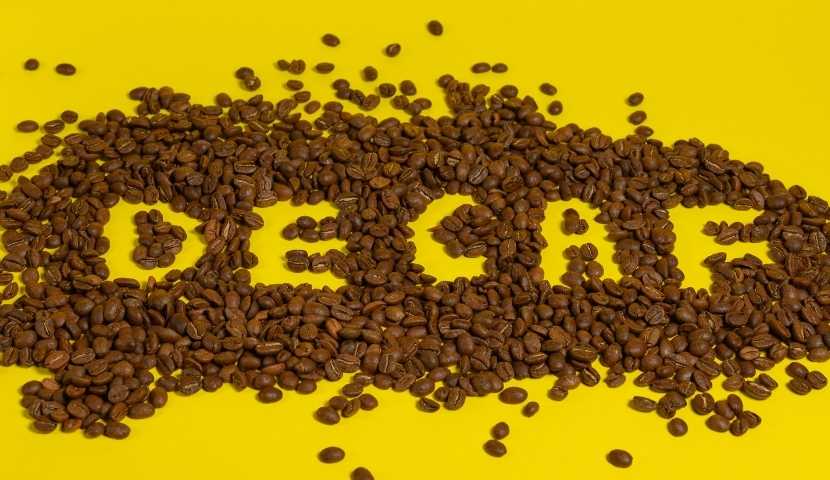
Yes, decaffeinated coffee can still impact blood pressure. A study published in Harvard Health found that decaffeinated espresso increased systolic blood pressure by an average of 12 mm Hg in non-coffee drinkers, nearly as much as regular espresso. This suggests that compounds other than caffeine in coffee may influence blood pressure.
Can coffee consumption reduce the risk of developing hypertension?
Moderate coffee consumption may lower the risk of developing hypertension. A meta-analysis indicated that drinking one to two cups per day did not increase hypertension risk, while three or more cups per day were associated with a reduced risk. However, these findings are not consistent across all studies.
How does caffeine affect blood pressure in individuals with labile hypertension?
In individuals with labile hypertension, caffeine can cause significant fluctuations in blood pressure. Caffeine may constrict blood vessels and stimulate the release of adrenaline, leading to sudden spikes in blood pressure. This can be particularly concerning for those with unstable blood pressure levels.
Is there a difference in how coffee and green tea affect blood pressure?
Yes, there is a difference. A study by the American Heart Association found that while drinking two or more cups of coffee daily may double the risk of death from cardiovascular disease among people with severe hypertension, drinking green tea did not have the same effect. This suggests that green tea may be a safer alternative for individuals with high blood pressure.
Can caffeine consumption lead to labile hypertension?
Yes, caffeine can contribute to labile hypertension. The consumption of caffeine may constrict blood vessels and stimulate the release of adrenaline, leading to unexpected spikes in blood pressure. This is particularly concerning for individuals who experience significant fluctuations in their blood pressure.

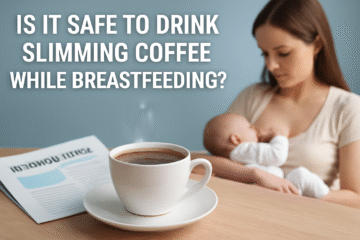

0 Comments